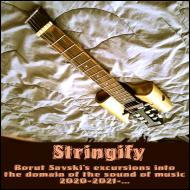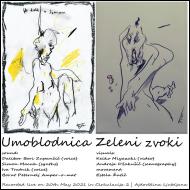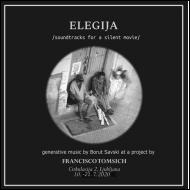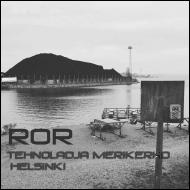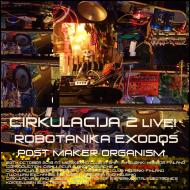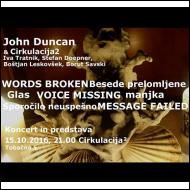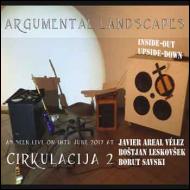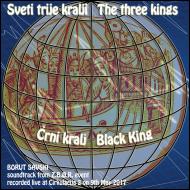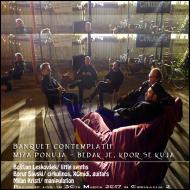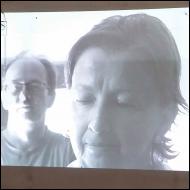
Trivia Art Association
 Kulturno umetniško društvo Trivia vabi samozaposlene v kulturi k naročanju na e-publikacijo in servis Novičnik za samozaposlene v kulturi. Celoletna naročnina vključuje mesečno e-publikacijo, osebno svetovanje in prvi pravni posvet.
Kulturno umetniško društvo Trivia vabi samozaposlene v kulturi k naročanju na e-publikacijo in servis Novičnik za samozaposlene v kulturi. Celoletna naročnina vključuje mesečno e-publikacijo, osebno svetovanje in prvi pravni posvet.Socialdress – Small Retrospective Exhibition in Maribor
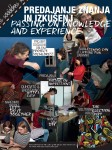 Socialdress – Small Retrospective Exhibition, KiBela Space for Art, MMC Kibla, Maribor, Slovenia, 8. – 30. April 2016.
Socialdress – Small Retrospective Exhibition, KiBela Space for Art, MMC Kibla, Maribor, Slovenia, 8. – 30. April 2016.
Opening: Friday, 8 April 2016, at 8 p. m.
Artist guide: Friday, 8 April 2016, at 7 p. m.
A retrospective exhibition of the project Socialdress was first presented in October 2015 in the Alcatraz gallery in Ljubljana. Aleksij Kobal, this year’s winner of Preseren Award, said: ‘I think that Mojca Marija Pungercar is a good example of activism (in art). She is really committed more wide. Her retrospective exhibition in Alkatraz proves how wide she raised the idea that marginal groups would have something of it. ” (from the interview of Katarina Stopar with Aleksij Kobal, MMC RTV Slo, 13. 2. 2016).
—————–
Author of the project Socialdress – Small Retrospective Exhibition: Marija Mojca Pungerčar
Year of creation: 2015
Idea, texts, translations, object-making: Marija Mojca Pungerčar
Design: Mojca J. Tomažič / Kontrastika
Photographs from the archive of Socialdress are included. Authors of photographs: Kristina Berčič, Reinhard Brečko, Tomo Jeseničnik, Jasmina Klančar, Damijan Kracina, Emmanuelle Nizou, Marija Mojca Pungerčar, Špela Škulj, Bojan Velikonja and Nada Žgank.
Production: KUD Mreža / Alkatraz Gallery
Co-production: Trivia Art
Special thanks: Meavista
—————–
PHOTOS: exhibition, opening (Kibla website)
—————–
THE WORD OF THE CURATOR
Marija Mojca Pungerčar is an established Slovene visual artist, who has been engaged for over a decade with DIY (do-it-yourself) practices and projects connecting art, production and crafts. DIY stands for a modern subversive subculture that employs a creative use of natural or other types of materials for a transformation, reproduction or reconstruction of goods that characterize, and, in their greediness, even define the global consumer.
Based on the experience gained in this ten-year period of creative “workshopping” and other highly interactive efforts, the artist faces us with some food for thought in relation to the “social dress code” of DIY clothes, which addresses and unfolds the persistent dualism of arts & (handi)crafts: the essence of a garment, i.e. the skill of the craftsman, by means of which it becomes realized, coupled with high-quality, preferably green materials, consciously gives way to the greenhouse destroyer – mass production. The DIY concept in fact calls our attention to the loss of balance between what is necessary and what is being offered to us. The two are not necessarily homonymous.
Let us recall the famous Bauhaus art school, whose name inspired the brand of a modern-day home improvement chain store: homage to a maxi-size retailer, where you can buy at bargain prices all of those things that would have cost a fortune in time and money in the old days of true handicrafts. It seems we are forgetting that Bauhaus, the German school of design, was established as long ago as 1919, and that it was then (not today) that it stood for a (yet another) break from the ossified academism, in a way, which was particularly painful for the theorists – with the credo of “less is more”. In its time, Bauhaus was a synonym for modern architecture and furniture, as well as for minimalist design concepts. The surplus that revolutionizes the idea of the Bauhaus, however, is in fact the “old school” approach to creativity: DIY as the basic principle of the link between mentor and learner also implies a methodological approach to creativity and a return to the “workshop-based practices”, i.e. the entire process from the idea to the final product.
Socialdress is an art project that has been ongoing since 2006 and is markedly characterized by typical interdisciplinary art features: it combines traditional skills and craftsmanship, modern technology, fashion, social commitment, activism and social entrepreneurship. Contemporary computer-supported embroidery technologies enable creative ways of expression even for people who are not artists or experts, something which the artist herself has been pursuing from the very beginning. Individual clothes-making is transformed by means of the Socialdress workshops into a social and socializing activity, with the wider goal of raising the level of culture in the consumer society, raising awareness about recycling and reuse, as well as reintegration and revitalization of the already used into something new.
Just do it.
Nina Jeza, Artists&Poor’s
—————–
THE WORD OF ARTIST
“The project Socialdress – A small retrospective sheds light on a decade of my enthusiastic work as a seamstress in the frame of the ongoing Socialdress project. I use the term “social dress” for clothing that has an integrative effect in terms of community. The Socialdress workshops spread knowledge about clothes making, and at the same time reinforce the awareness about the consequences of globalization to the Slovenian textile industry, and about the gradual disappearance of craft skills. At Socialdress workshops we create functional items of clothing with a lot of soul that are easy to make as well. An important part of the workshops is communication – the exchange of stories and experiences.
The project Socialdress – A small retrospective is an installation composed of a series of collages-posters in the form of banners, leaning against the walls with the help of handholds made from cardboard tubes used for storing fabric. The posters feature documentary photographs accompanied by texts in the form of slogans, which highlight the most important traits of individual projects, but they can also be interpreted as a sort of a zeitgeist, reflecting the period in which they were created.”
Marija Mojca Pungerčar
—————–
ABOUT THE ARTIST
Marija Mojca Pungerčar (1964), formerly a fashion designer in the field of Slovenian textile industry, a member of the Linije sile group, holds a BFA in painting from the Academy of Fine Arts and Design in Ljubljana (1989), and obtained her MFA in new genres at the San Franscisco Art Institute, California (2001). She was a visiting student at the University of Applied Arts Vienna (1992–93), and works as self-employed in the field of culture since 1991. Among the numerous prizes and recognition awards she received are the Rihard Jakopič Recognition, the Festival of the Independent Movie Award, the Austrian Academic Exchange Scholarship, the ArtsLink Fellowship, and the Fulbright Scholarship. She is active in the field of contemporary visual arts (installation, video, performance) and as a theater costume designer. Her work is marked by dedicated social engagement, critique of the consumerist society and highlighting the value of (local) communities. She is currently based in Ljubljana.
Author’s homepage: www.mojca.info
Project Socialdress: http://www.socialdress.si
The exhibition will be showing until 30 April 2016.
-----------------
PUBLICATIONS
Socialdress Chronology (pdf)
About the exhibition (pdf)
Marija Mojca Pungerčar: Audio Guide (Youtube)
—————–
LINKS
Socialdress – Small Restrospective Exhibition at the website of the Alkatraz Gallery:
http://galerijalkatraz.org/?p=10729
Socialdress – home website:
http://www.socialdress.si/
Marija Mojca Pungercar – home website::
http://www.mojca.info
—————–
The upper photo: Marija Mojca Pungerčar: the work from the Socialdress – Small Retrospective exhibition Serial, 2015. Photo: Marija Mojca Pungerčar.
